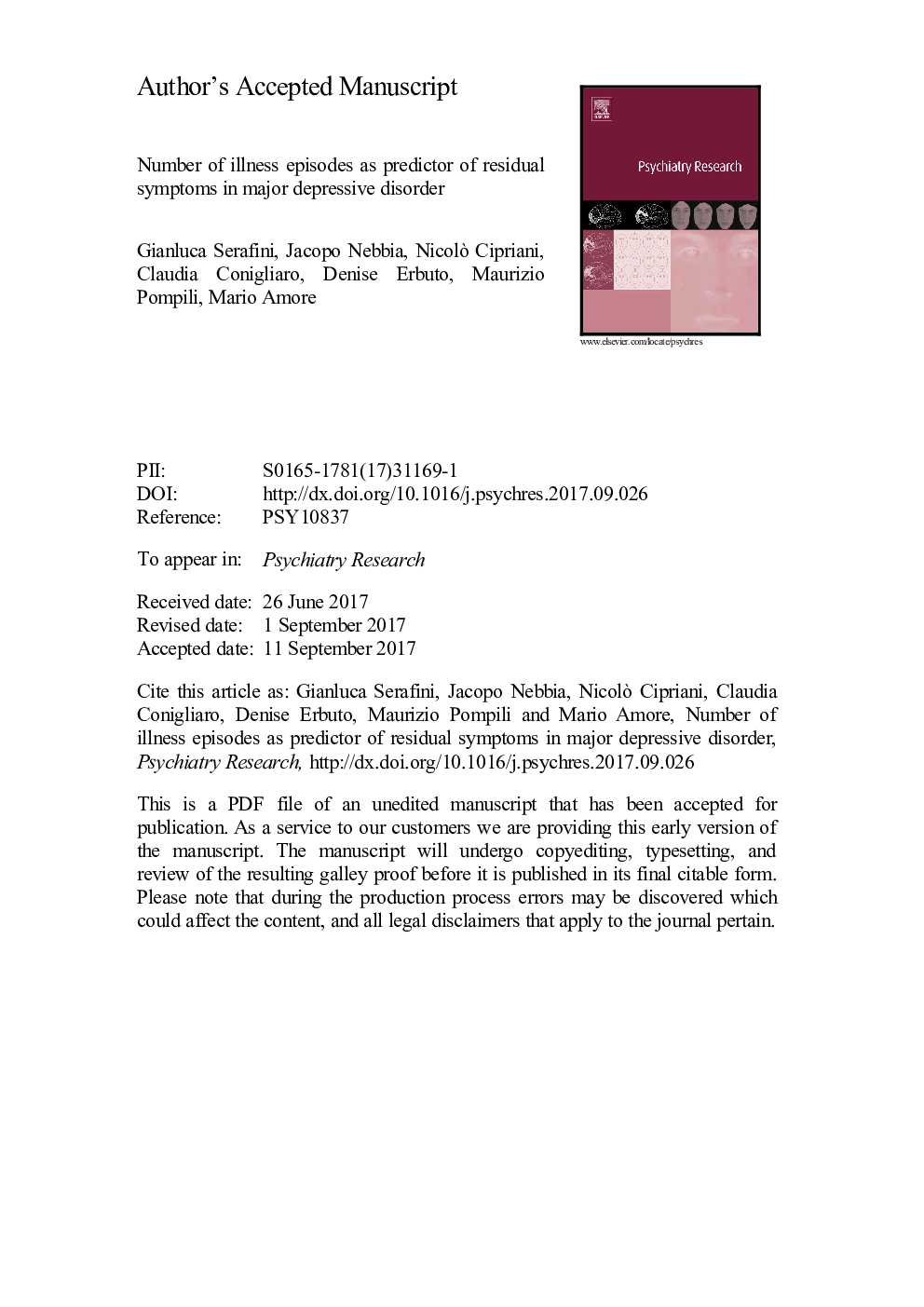| Article ID | Journal | Published Year | Pages | File Type |
|---|---|---|---|---|
| 6811757 | Psychiatry Research | 2018 | 29 Pages |
Abstract
Notwithstanding major depressive disorder (MDD) is a recurring and chronic condition, relatively few variables have consistently been shown to predict its course. Residual depressive symptoms may be associated with disability and functional impairment but few studies evaluated clinical correlates associated with these symptoms and their impact on functioning after adjustment for potential confounders. Therefore, our study aimed to investigate factors associated with residual depressive symptoms and their impact on the course of MDD. The sample consisted of 210 consecutive MDD euthymic outpatients (67.6% females; mean age = 52.1 ± 15.5), admitted to the Section of Psychiatry, University of Genoa (Italy). Residuals depressive symptoms were significantly associated with female gender; use of short half-life benzodiazepines; longer duration of the current depressive episode; higher number of illness episodes; and higher duration of illness. Conversely, prior treatment with first-generation antipsychotics, later age of illness onset and first hospitalization were less frequently observed among patients with residual symptoms. After multivariate analyses, only duration of current illness episodes (à = 0.003; p = <0.005) and substance abuse (à = 0.042; p = <0.05) remained significantly associated with residual symptoms. Our findings indicate that residual depressive symptoms conferred a pernicious illness course in this specific cohort of MDD patients. Future trials mainly targeting these burdensome symptoms are warranted.
Keywords
Related Topics
Life Sciences
Neuroscience
Biological Psychiatry
Authors
Gianluca Serafini, Jacopo Nebbia, Nicolò Cipriani, Claudia Conigliaro, Denise Erbuto, Maurizio Pompili, Mario Amore,
